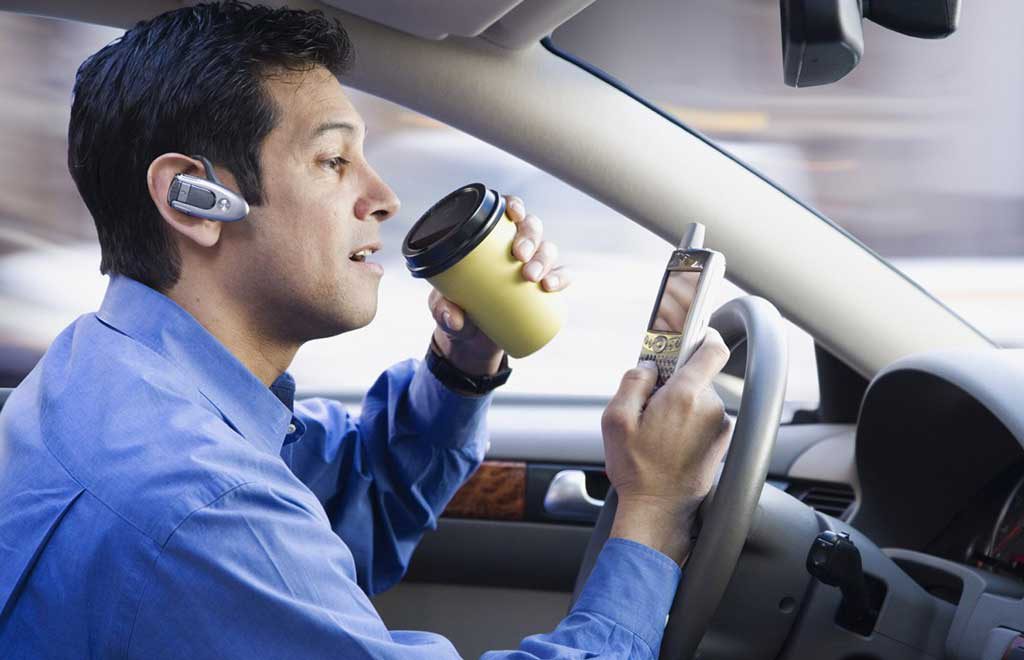In an accident involving a negligent driver, injuries are likely to be sustained by you and others. What actions can you take against the negligent driver that can help you cover your medical expenses or even get monetary compensation for loss of income? In this post, we will talk about what to do once the accident occurs, how to hold the negligent driver liable, and how to reduce personal injury when dealing with insurance companies.
Contents
- What Actions Should You Take Immediately After An Accident Involving a Negligent Driver?
- Stay Where You Are. Ensure That Everyone Is Safe
- Report the Accident to Law Enforcement (911)
- Write Down Information for All Relevant Parties. Take Pictures Documenting the Accident Evidence
- Take Down Contact Information for Any Witnesses
- Contact Your Insurance Company
- Visit a Doctor immediately if you are injured. Keep Track of Costs
- Contact an Auto Accident Attorney If Needed
- What is Negligence?
- What are The Elements of a Negligence Claim?
- What’s an Example of Negligence in a Car Accident?
- Who Decides Whether Someone is Liable Because of Negligence?
What Actions Should You Take Immediately After An Accident Involving a Negligent Driver?

Stay Where You Are. Ensure That Everyone Is Safe
As soon as you experience an accident, it is important to keep yourself and other people safe. The first thing to do is stay where you are. While you are waiting for the police to arrive at the scene of an accident, make sure that everyone involved in the collision remains safe. Help injured parties get out of their vehicles, and get them to medical help if needed.
Report the Accident to Law Enforcement (911)
If you have been injured in a car crash caused by a negligent driver, it is really important to call 911. The time that it takes to report the accident in most cases will be used against your case by the insurance companies for the negligent driver.
Write Down Information for All Relevant Parties. Take Pictures Documenting the Accident Evidence
you should take down the name and contact information for all relevant parties, including the driver’s insurance carrier, as well as their employer. You should also take pictures of accident evidence and document how the accident occurred. The sooner you do this after an accident, the better.
Take Down Contact Information for Any Witnesses
Witnesses are important when it comes to determining who was at fault for the accident. You will want to make sure that you have the contact information of any witnesses so that you can obtain a statement from them and potentially use their testimony as evidence in a case against the negligent driver.
Contact Your Insurance Company
Whether you are at fault or not, it is critical to call your insurance agency and report any accident that involves wounds or property harm. A typical misconception is that you don’t have to contact your insurance agency if you are not at fault. If you neglect to report an accident or document a case, you may have to face legal consequences. If you fail to report the incident, and just exchange information, your insurance agency may have a lawful option to decline to cover the harms you discover later.
Visit a Doctor immediately if you are injured. Keep Track of Costs
After an automobile accident, one of the first things you should do is contact your doctor. If you have been injured in an accident caused by a negligent driver, whether or not your injuries might require medical attention. If the crash was serious, seek a medical examination at your earliest opportunity and document how much these cost you.
Contact an Auto Accident Attorney If Needed
After an accident involving a negligent driver, it is important to take action immediately. Your next step should be to contact an auto accident lawyer in New Jersey or whichever state you’re in if your injuries are severe to ensure you have someone on your side looking out for your health and financial interests. A lawyer will be able to explain the law in detail and show you how to hold the negligent driver liable.
What is Negligence?
Negligence is the act of failing to use the standard of care that a reasonable person would use in a similar situation. When negligence takes place, someone can be held liable for injuries or property damage beyond the normal scope of what is acceptable. It is common to hold a negligent driver responsible in the event they cause an accident.
Counsel for the person who has suffered an injury in an accident will argue that the other driver was negligent by failing to use reasonable care when driving. They may have been speeding or failing to pay attention while they were driving. However, claims of negligence must prove four things which are: duty, breach, cause, and damage.

What are The Elements of a Negligence Claim?
Duty
Duty is the obligation of one person to another. This claimant must have suffered an injury because of your negligence. Duty is a legal concept that makes most people think of their “duties” to other people, such as neighbors or employers. But in a negligence claim, the duty refers to the duty owed by the careless person or organization to the person injured.
Breach
There’s a test to assess if a person breached their duty: did they perform their duties in a manner “any reasonable and prudent person would perform in the same situation?” A lot of times, this is difficult to prove. The defendant may have simply been acting on an impulse and did not give much thought to his actions. If you are able to prove the driver was negligent, then it is necessary to move onto the next element of a negligence claim
Causation
Causation is important in the case of negligent driving causing an accident. Litigation may not proceed to trial unless the plaintiff can prove that the defendant’s negligence caused their injuries. In other words, it is a prerequisite to every action for negligence where damages are sought.
Damage
These things do not have to be continuous; a single injury or act can qualify. Also, be aware of the fact that some injuries are direct while others occur indirectly as a result of negligence. Indirect injuries can include lost wages for an employee who misses work due to an accident, or loss of potential income in cases where you suffered some sort of permanent injury.
What’s an Example of Negligence in a Car Accident?
Deliberate acts of negligence in a car accident refer to behaviors that are considered careless and reckless. Negligent actions are usually done either intentionally or through criminal indifference to the consequences of one’s action. For example, A driver is speeding and has run a red light, causing him to hit your car. You then proceed to sue the driver for negligence, claiming that he was driving too fast while operating his vehicle.
Who Decides Whether Someone is Liable Because of Negligence?
Subsequent to being introduced proof by the attorney, an appointed authority or jury will choose what a “standard” or “sensible individual” would have done in comparative conditions. In the case of an auto collision, an appointed authority or jury is probably going to discover a driver careless if their behavior left what a customary sensible individual would have done in comparable conditions. A model would be neglecting to stop at a stoplight or stop sign.
If you are an injured party in an accident, you may have many problems that seem insurmountable at the time. Unfortunately, there are parties that will do everything possible to prevent you from recovering money for your injuries. These insurers and other attorneys will work hard by hiding evidence, misleading you, and even lying to you. This is why it is important to have a personal injury attorney on your side.



